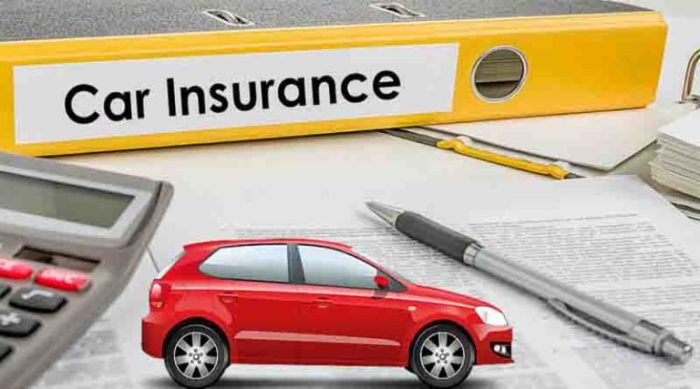Car insurance policy – Car insurance policies are essential for protecting yourself financially in the event of an accident. But with so many different types of policies available, it can be difficult to know which one is right for you. This guide will help you understand the different types of car insurance policies, the coverage options available, and the factors that affect premiums. We’ll also provide tips on how to choose the right policy for your needs.
Types of Car Insurance Policies

Car insurance policies provide financial protection against risks associated with owning and operating a vehicle. There are various types of car insurance policies, each offering different levels of coverage and benefits.
When choosing a car insurance policy, it’s important to find one that provides the coverage you need at a price you can afford. If you live in Florida, there are a number of great car insurance companies to choose from.
To learn more about the best car insurance in Florida, click here. Ultimately, the best car insurance policy for you will depend on your individual needs and budget.
Liability Insurance
- Covers bodily injury and property damage caused to others in an accident you are at fault for.
- Required by law in most states.
- Typically includes bodily injury liability (BIL) and property damage liability (PDL).
Collision Insurance
- Covers damage to your own vehicle in an accident, regardless of fault.
- Optional coverage.
- Typically has a deductible, which is the amount you pay out-of-pocket before the insurance coverage kicks in.
Comprehensive Insurance
- Covers damage to your vehicle caused by non-collision events, such as theft, vandalism, or natural disasters.
- Optional coverage.
- Typically has a deductible.
Uninsured/Underinsured Motorist Coverage
- Covers bodily injury and property damage caused by drivers who are uninsured or underinsured.
- Optional coverage.
- Can provide protection in hit-and-run accidents.
Personal Injury Protection (PIP)
- Covers medical expenses and lost wages for you and your passengers, regardless of fault.
- Required in some states.
- Can also cover funeral expenses.
Factors Influencing Policy Type Choice, Car insurance policy
- State legal requirements
- Financial situation
- Value and age of vehicle
- Driving history
- Personal risk tolerance
Coverage Options in Car Insurance Policies
| Coverage Type | Description | Examples |
|---|---|---|
| Bodily Injury Liability (BIL) | Covers injuries sustained by others in an accident you cause. | Medical expenses, lost wages, pain and suffering |
| Property Damage Liability (PDL) | Covers damage to property of others in an accident you cause. | Vehicle repairs, building damage, fence damage |
| Collision | Covers damage to your own vehicle in an accident, regardless of fault. | Vehicle repairs, replacement |
| Comprehensive | Covers damage to your vehicle caused by non-collision events, such as theft or natural disasters. | Theft, vandalism, hail damage |
| Uninsured/Underinsured Motorist Coverage | Covers bodily injury and property damage caused by drivers who are uninsured or underinsured. | Medical expenses, lost wages, vehicle repairs |
| Personal Injury Protection (PIP) | Covers medical expenses and lost wages for you and your passengers, regardless of fault. | Medical bills, lost income |
Optional and Add-On Coverage Options
- Rental car reimbursement
- Towing and roadside assistance
- Gap insurance
- Agreed value coverage
- Replacement cost coverage
Coverage Limits and Deductibles
- Coverage limits determine the maximum amount the insurance company will pay for a covered loss.
- Deductibles are the amount you pay out-of-pocket before the insurance coverage kicks in.
- Higher deductibles typically result in lower premiums.
Factors Affecting Car Insurance Premiums
- Driving history (accidents, violations, years of experience)
- Vehicle type (make, model, safety features)
- Location (population density, crime rates)
- Age and gender of driver
- Annual mileage
- Credit score (in some states)
Discounts and Loyalty Programs
- Good driver discounts
- Multi-car discounts
- Safe driver discounts
- Loyalty discounts
- Usage-based insurance discounts (telematics devices)
Understanding Insurance Policy Documents
Car insurance policies are legal contracts that Artikel the terms and conditions of coverage. Understanding the policy is crucial to ensure you are adequately protected.
Sections and Clauses
- Declarations page: Basic information about the policyholder, vehicle, and coverage.
- Insuring agreement: Artikels the specific risks covered by the policy.
- Exclusions: Lists events or situations that are not covered.
- Conditions: General rules and requirements for coverage.
- Endorsements: Amendments or additions to the policy.
Importance of Understanding Policy Terms and Conditions
- Ensures you are aware of the coverage you have and any limitations.
- Helps you avoid surprises or disputes in the event of a claim.
- Allows you to negotiate or customize the policy to meet your specific needs.
Claims Process and Settlement
Filing and processing a car insurance claim can be a stressful experience. Understanding the process can help ensure a smooth and successful outcome.
Choosing the right car insurance policy is crucial to protect your vehicle and yourself financially. One provider worth considering is Kemper, known for its competitive rates and comprehensive coverage options.
Their Kemper car insurance policies offer a range of benefits, including roadside assistance, accident forgiveness, and customizable coverage options.
Whether you’re a new driver or have years of experience, Kemper can provide tailored insurance solutions that meet your specific needs.
Steps Involved in Filing a Claim
- Report the accident to your insurance company promptly.
- Gather evidence, such as a police report, witness statements, and photos.
- Submit a claim form and supporting documentation.
- Cooperate with the insurance adjuster during the investigation.
Factors Influencing Claim Settlement Amounts and Timelines
- Extent of damage
- Liability determination
- Policy coverage limits
- Availability of evidence
- Insurance company policies and procedures
Role of Insurance Agents and Brokers

Insurance agents and brokers play a crucial role in the car insurance industry, providing guidance and support to policyholders.
A car insurance policy is a must-have for protecting yourself financially in the event of an accident. But what about the long-term? As you age, you may need additional care, such as assistance with daily activities or medical care.
That’s where long-term care insurance comes in.
It can help cover the costs of these services, giving you peace of mind knowing that you’ll be taken care of in the future. And while car insurance is important, it’s just one piece of the puzzle when it comes to protecting your financial well-being.
Functions and Responsibilities
- Explain different policy options and coverage.
- Compare quotes from multiple insurance companies.
- Help file and process claims.
- Negotiate with insurance companies on behalf of policyholders.
Benefits of Working with an Agent or Broker
- Personalized advice and guidance.
- Access to a wider range of insurance options.
- Advocacy and support during the claims process.
- Potential savings on premiums through group discounts or negotiations.
Factors to Consider When Choosing an Insurance Representative
- Experience and reputation
- Insurance company affiliations
- Customer service
- Fees or commissions
Technology in Car Insurance
Technology is transforming the car insurance industry, offering new ways to manage policies and reduce premiums.
Telematics Devices
- Monitor driving behavior, such as speed, braking, and mileage.
- Provide data that can be used to reward safe drivers with discounts.
- Help insurance companies assess risk more accurately.
Mobile Apps and Online Platforms
- Allow policyholders to access their policies, file claims, and track the status of claims.
- Provide personalized recommendations and alerts.
- Make it easier for policyholders to manage their insurance needs.
Closing Notes
Choosing the right car insurance policy is an important decision. By understanding the different types of policies available and the factors that affect premiums, you can make an informed decision that will protect you financially in the event of an accident.
FAQ: Car Insurance Policy
What is the most important type of car insurance?
Liability insurance is the most important type of car insurance because it protects you from financial responsibility if you cause an accident.
What are the different types of car insurance coverage?
There are many different types of car insurance coverage available, including liability insurance, collision insurance, comprehensive insurance, and uninsured motorist coverage.
What factors affect car insurance premiums?
Many factors affect car insurance premiums, including your driving history, your age, your location, and the type of car you drive.




